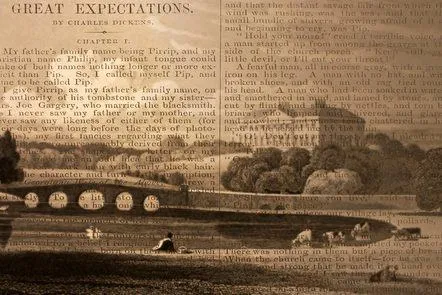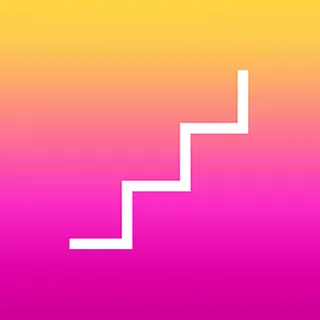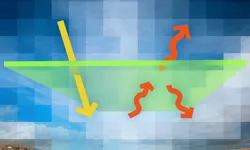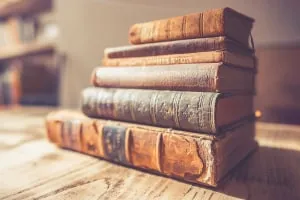
Explore country house literature - Online Course 
This online course explores country house literature from the 16th to the 19th centuries. Through extracts from novels, manuscripts, poetry and drama, students will learn about works from Thomas More, Margaret Cavendish, Jane Austen, Ann Radcliffe, Charles Dickens and Oscar Wilde. They will also explore lesser known forms of texts and less familiar authors. The course will provide students with literary research approaches from experts at the University of Sheffield School of English, as well as the material conditions and contexts within which literature was originally produced. ▼
ADVERTISEMENT
Course Feature
![]() Cost:
Cost:
Free
![]() Provider:
Provider:
Futurelearn
![]() Certificate:
Certificate:
No Information
![]() Language:
Language:
English
![]() Start Date:
Start Date:
Self Paced
Course Overview
❗The content presented here is sourced directly from Futurelearn platform. For comprehensive course details, including enrollment information, simply click on the 'Go to class' link on our website.
Updated in [May 25th, 2023]
This online course offers an exploration of country house literature, with extracts from novels, manuscripts, poetry and drama. Students will be exposed to selected works from Thomas More, Margaret Cavendish, Jane Austen, Ann Radcliffe, Charles Dickens and Oscar Wilde, as well as lesser known forms of texts and less familiar authors. The course will also provide an introduction to literary research approaches of experts from the University of Sheffield School of English, and will explore the material conditions in which country house literature originally appeared, as well as the contexts within which literature was originally produced.
[Applications]
This online course provides an opportunity to explore country house literature from a variety of perspectives. Participants can gain an understanding of the extracts from novels, manuscripts, poetry and drama, as well as selected works from Thomas More, Margaret Cavendish, Jane Austen, Ann Radcliffe, Charles Dickens and Oscar Wilde. Additionally, the course covers lesser known forms of texts and less familiar authors. Through the literary research approaches of experts from the University of Sheffield School of English, participants can gain an understanding of the material conditions in which country house literature originally appeared, as well as the contexts within which literature was originally produced. Upon completion of the course, participants can apply their knowledge to further research in the field of country house literature, as well as to the analysis of other literary works.
[Career Paths]
1. Literary Researcher: Literary researchers analyze and interpret literature, often focusing on a particular author or genre. They use a variety of methods to uncover the meaning of a text, including close reading, textual analysis, and historical research. As technology advances, literary researchers are increasingly using digital tools to analyze texts and uncover new insights.
2. Literary Critic: Literary critics evaluate and interpret literature, often focusing on a particular author or genre. They use a variety of methods to analyze a text, including close reading, textual analysis, and historical research. They also consider the cultural and social contexts in which a text was produced. As technology advances, literary critics are increasingly using digital tools to analyze texts and uncover new insights.
3. Literary Editor: Literary editors are responsible for editing and proofreading manuscripts for publication. They review manuscripts for accuracy, clarity, and consistency, and make sure that the text meets the publisher’s standards. They also work with authors to ensure that the text is well-written and meets the publisher’s expectations. As technology advances, literary editors are increasingly using digital tools to edit and proofread manuscripts.
4. Literary Historian: Literary historians study the history of literature, often focusing on a particular author or genre. They use a variety of methods to uncover the history of a text, including close reading, textual analysis, and historical research. As technology advances, literary historians are increasingly using digital tools to analyze texts and uncover new insights.
[Education Paths]
1. Bachelor of Arts in English Literature: This degree path provides students with a comprehensive understanding of the history, theory, and practice of English literature. Students will learn about the various genres, authors, and works of literature, as well as the cultural and historical contexts in which they were produced. Additionally, students will gain an understanding of the development of literary criticism and the changing trends in literary studies.
2. Master of Arts in Country House Literature: This degree path provides students with an in-depth exploration of the literature, authors, and works associated with the country house genre. Students will learn about the various forms of country house literature, including novels, manuscripts, poetry, and drama. Additionally, students will gain an understanding of the material conditions in which country house literature originally appeared, as well as the contexts within which it was produced.
3. Doctor of Philosophy in Literary Studies: This degree path provides students with an advanced understanding of the history, theory, and practice of literary studies. Students will learn about the various genres, authors, and works of literature, as well as the cultural and historical contexts in which they were produced. Additionally, students will gain an understanding of the development of literary criticism and the changing trends in literary studies.
4. Master of Arts in Literary Studies: This degree path provides students with an in-depth exploration of the history, theory, and practice of literary studies. Students will learn about the various genres, authors, and works of literature, as well as the cultural and historical contexts in which they were produced. Additionally, students will gain an understanding of the development of literary criticism and the changing trends in literary studies, as well as the emerging trends in digital humanities and the use of technology in literary studies.
Course Provider

Provider Futurelearn's Stats at AZClass
Discussion and Reviews
0.0 (Based on 0 reviews)
Explore Similar Online Courses

After Effects CC 2022: Complete Course from Novice to Expert

Global Warming II: Create Your Own Models in Python

Python for Informatics: Exploring Information

Social Network Analysis

Introduction to Systematic Review and Meta-Analysis

The Analytics Edge

DCO042 - Python For Informatics

Causal Diagrams: Draw Your Assumptions Before Your Conclusions

Whole genome sequencing of bacterial genomes - tools and applications

Write a Killer Literature Review

Advanced Diploma in World Literature


Start your review of Explore country house literature - Online Course